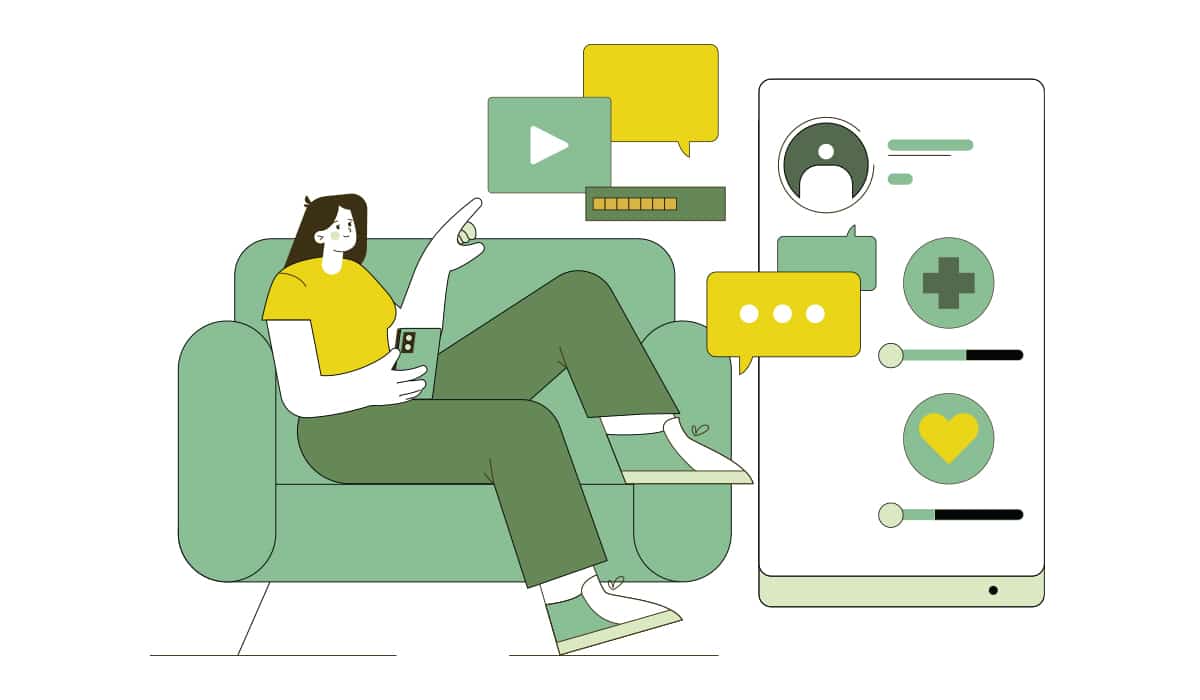The global mental-health crisis may be growing, but so too is the range of technological solutions — from digital screening tools to online therapy and AI-assisted interventions. Here’s what you need to know
Mental disorders are a major health challenge worldwide, with one in every two people set to develop at least one disorder in their lifetime, according to a 2023 study in The Lancet medical journal. And there is a “massive unmet need for treatment’ according to the principal researcher of the study.
The need stems from ignorance and the ongoing stigma around mental health, along with difficulty accessing psychological help due to the cost, travel distances and, in South Africa specifically, poorly developed mental-health services and a limited supply of mental-health professionals and staff, noted a 2011 study in Psychiatric Services.
Today a slew of mental-health tech solutions are emerging to address the need, putting anyone with a smartphone or computer in reach of diagnosis, treatment and support. These range from simple meditation apps to sophisticated apps that use built-in sensors to collect information on a user’s typical behaviour. If the app then picks up a change, it can signal that help is required before a crisis erupts.
There are now thousands of these apps available in iTunes and Android stores, with more constantly being released as technology evolves. But for all the buzz around such developments, the US National Institute of Mental Health (NIMH) reports that “this new technology frontier includes a lot of uncertainty”. It notes that there is little industry regulation, with no review boards or widely accepted rules for evaluating and choosing mental-health technology, and little objective data on its effectiveness —or on users’ privacy, despite dealing with sensitive personal information.
The NIMH advises caution in trusting any mental-health tech tool, and the South African Anxiety and Depression Group (SADAG) echoes this. “Online tools and apps can be incredibly helpful for mental health support and self-care, offering quick and accessible ways to track moods, practise mindfulness and connect with resources,” says SADAG operations director Cassey Chambers. “However, they should be used alongside other treatments like therapy, medication and professional support when needed. The right tools can empower people on their mental-health journey, but it can often be overwhelming to know which apps would work best.”

Innovations to investigate
On-demand programmes:
These provide an online platform that connects you with vetted mental-health professionals, resources and communities, such as South Africa-based Amari Health (previously The Pocket Couch). “We address issues of convenience, cost and removal of stigma around mental health,” says founder Onkgopotse Khumalo. In 2023, The Pocket Couch was named Best Mental Health Software Provider in South Africa at the MEA Markets African Business Excellence Awards.
AI tools for early detection and diagnosis:
Algorithms can analyse data from your social-media posts and wearable health devices and find patterns that indicate the possible onset of a mental-health issue such as anxiety or depression. With natural language processing (NLP), it can pick up changes in your speech pattern, emotions and language that suggest distress before you are conscious of it.
AI chatbots and therapy apps:
Bots can provide a way for you to receive support anonymously if you fear stigma or rejection. They can engage in therapeutic conversations to help you work though emotional problems, give you coping strategies or just lend an ear.
AI monitoring tools:
Traditional tools to track your progress, such as self-reported questionnaires or quick check-ins during your appointments, are unlikely to give a full picture of your mental health. AI tools enable a therapist to monitor you in real time with apps that track your emotional patterns and physiological information (such as from wearables that monitor your heart rate changes and sleep patterns). This can give insight into your mental well-being so the therapist can adjust your treatment or therapy accordingly.
Virtual-reality therapy:
This uses a computer-simulated world where those with conditions such as social anxiety, phobias and post-traumatic stress disorder can face a fear in a safe environment, practise new skills or become more confident in social interactions. VR therapy is mostly used by clinicians as an additional treatment and is offered locally by the likes of Pretoria clinical psychologist Ashton Robertson.
Digital therapeutics:
These aim to help prevent and manage mental illnesses. For example, the Monarch External Trigeminal Nerve Stimulation System is the first FDA-cleared device for children with ADHD, offered as an alternative to medicinal interventions that may have long-term risks and side effects. A small electronic device stimulates the trigeminal nerve in the brain through a patch applied to the forehead at bedtime, and targets parts of the brain involved in mood disorders and attention. Limited studies have suggested improvements, but this year a clinical trial is being run at King’s College, London.

Tips to choose the correct tech tools
► Consider the pros and cons. Pros might include convenience (a tech tool allows treatment to take place anytime, anywhere); anonymity (it can act as an introduction to care if you’ve been reluctant to seek mental-health care); and cost (it’s usually cheaper than traditional in-person appointments, or even free). Weigh these against the cons given by the NIMH and SADAG (discussed on the previous page).
► Research the app/tool to see if there is evidence backing up its effectiveness or claims.
► Search for information about the app/tool developer, their credentials and experience. Was it designed with input from reputable mental- health professionals, not just software engineers/developers?
► If you are unable to find info about a particular tool, check to see if it’s based on a treatment that has been tested. For example, the NIMH says that “Research has shown that internet-based CBT (cognitive behaviour therapy) is as effective as conventional CBT for disorders such as anxiety, depression, social anxiety and panic disorder.”
► Ask a trusted healthcare provider for an app recommendation.
► Try it – test the app/tool for a few days. Is it easy to use, does it keep your attention and is it something you want to continue using?
► Check if it offers advice on what to do if your symptoms worsen or in the case of a psychiatric emergency and know how to get help if needed.
For any mental-health emergency help or support, contact SADAG’s 24-hour helpline: 0800 567 567, with trained volunteers who can provide help seven days a week.
By: Glynis Horning
Photography: Gallo/Getty Images, Freepik
Text courtesy of Club magazine
Also read: 5 Ways Good Laughter Affects Your Health and Wellness







